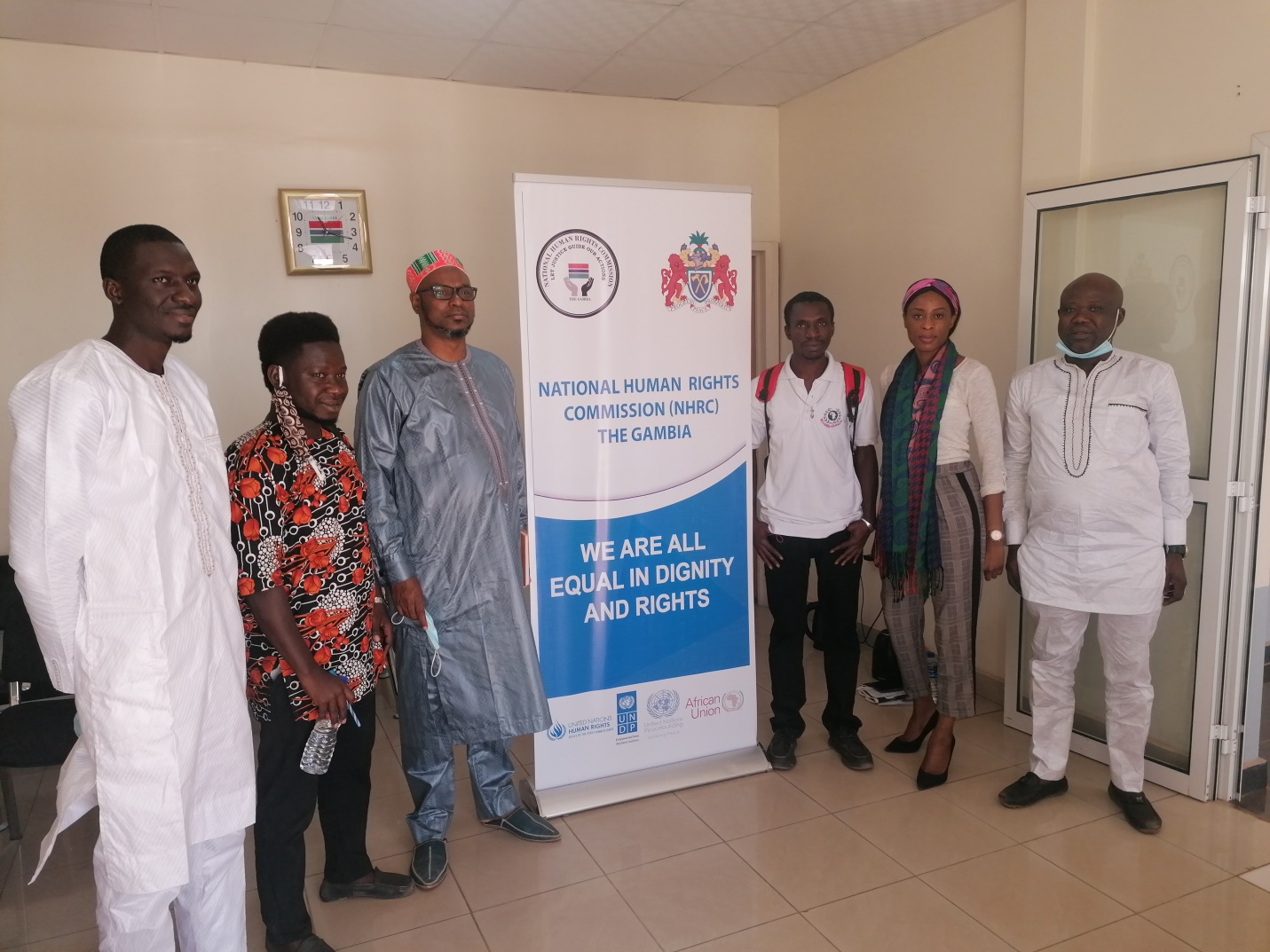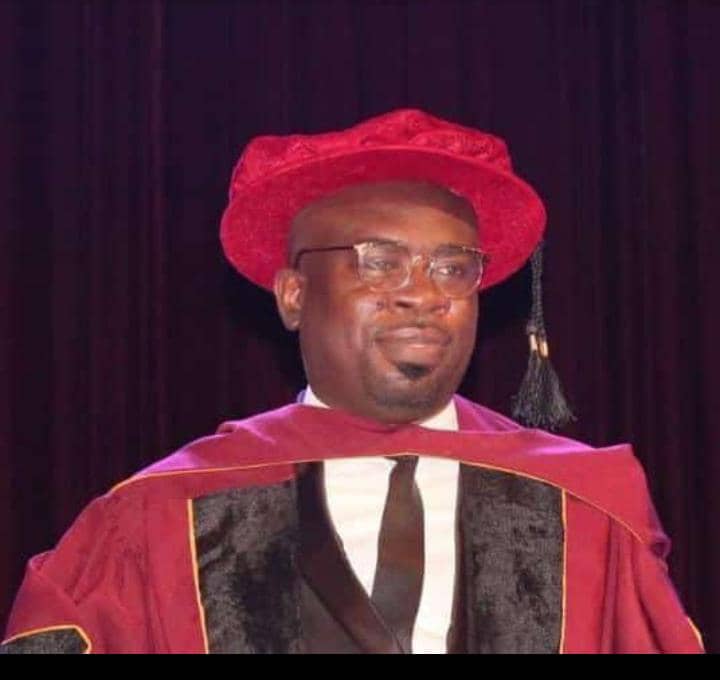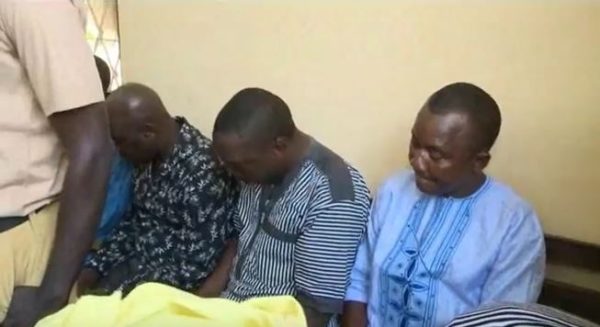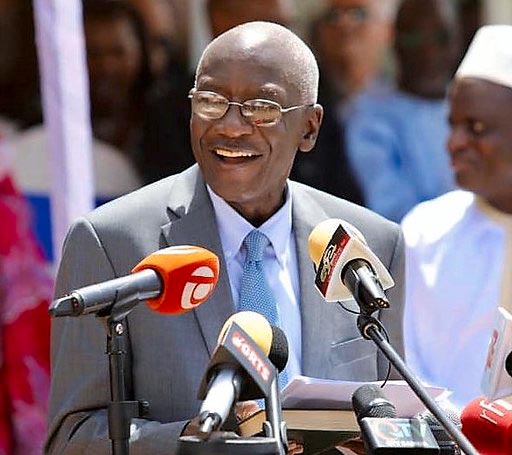The Network of Human Right Journalists – The Gambia and National Human Right Commission of The Gambia ready to sign a Memorandum of Understanding (MoU) to collaborate the work of the commission and the journalists.
Officials of NHRJ on Friday visited executive Secretary of the NHRC to brief him and his team on the work of the network and seek for partnership.
In his remarks, Musa S. Sheriff, National Coordinator NHRJ told official of the commission that the Network of Human Rights Journalists – The Gambia is a media organisation established for reporting, promotion and protection of human rights for the enhancement of development and democracy in The Gambia.
“The realisation, that empowerment is essential to promote, protect human rights and to fulfil these rights, the enhancement of development and democratic space is the network goal.”
Giving the background of the network, he said it was established in 2008 by Gambian journalists under the preview of the Gambia Press Union (GPU), while the network drew its membership from all the media houses in the country. “NHRJ is the first media organization under the GPU registered at the Ministry of Justice, Banjul in 2008,” he pointed out.
He explained that NHRJ is the first rights body to call on The Gambia government on the disappearance of Daily Observer journalist, Chief Ebrima Manneh by organizing a forum and urged government to release him at a forum held in Alliance Francaise de Banjul in 2007.
“NHRJ has a good working relationship with African Commission on Human and Peoples’ Rights under chairperson Commissioner Sanji Mmasenono Monageng. With support from her office, the NHRJ hosted human rights journalists from the 15 member States of ECOWAS including Cameroon,” he told officials of NHRC.
He therefore called on NHRC to help revive the network by organizing capacity building and training for members.
Fabakarry B Ceesay, Communication Officer NHRJ, said the network is a legally registered media organization in The Gambia.
He recalled that former African Commission on Human and Peoples’ Rights Chairperson Commissioner Salamata Sawadogo urged Gambian journalists covering the session with interest in human rights to establish a body for human rights reporting in The Gambia.
According to him, the former chairperson proposal was due to the fact that at the time the Gambia was with a national human rights commission.
“We found it difficult to get information of Gambian human rights violation and at the commission the only answer we got from the ACHPR hosted by the Gambia was that they are not aware of those violation. This is because there is no one reporting to the commission. The best you can do as journalists is to organize yourself in a group and work closely with the commission,” he further recalled.
Ceesay said members of NHRJ over the years contributed and work closely with various human rights institutions namely; the African Commission on Human and Peoples’ Rights, West Africa Human Rights Defenders Network, Amnesty International, Article 19 among others.
He disclosed that the network got weak following a threat on its members as many flew into exile.
“Currently, the NHRJ operation is a bit down and since the new government we are yet to play our roles as watchdog to human rights abuse in the country,” he added.
Mansour Jobe, director legal and investigation National Human Rights Commission said the NHRC was established by the national human rights commission Act 2017 with a general mandate to promote and protect rights in The Gambia.
He said one of its core functions is to receive and investigate complaints of human rights violations made by any person or a group of persons in The Gambia.
“In the performance of its functions, the commission has the powers, rights and privileges vested in the High Court at a trial. It has the powers to issue summon or order requiring the attendance of any person before the commission and the production of any document or records relevant to the complaint and to question any person in respect of any subject matter under investigation before the commission,” he said.
Dr. Cherno Omar Barry, executive secretary National Human Rights Commission commended officials of NHRJ for calling on his office in respect to partnership describing it as a move in the right direction and also overdue.
According to him, there are few rights violations that are reported while social right, environmental, land, health, cultural, education among others are under report in the country, adding that collaboration with NHRJ is significant to his office.
“We have lot to do, we do not have the staff volume to do all and we can’t reach all part of this country, but working with journalists will help us achieve and reach many parts of the country with our projects. You came at the right time and if you can do it under the former government, you can do more. I commend NHRJ for job well-done especially for your information doing those days,” he said.
He added: “I think there is a need for collaboration and to sign an MOU for a better understanding for capacity building.”
The forum was chaired by Matilda Mendy, deputy executive secretary who also commended NHRJ officials for reaching out to NHRC.




